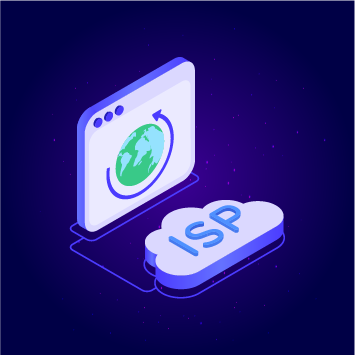Ah, the humble questionnaire. A tool meant to gather insights, opinions, and data—yet somehow, it always ends up being a test of our patience. But what if I told you there’s a way to speed through these digital interrogations like a caffeinated ninja? Enter: proxy IPs. Yes, my friend, the internet’s secret weapon for those who want to work smarter, not harder. Let’s break it down. What’s a Proxy IP? Think of a proxy IP as your internet disguise. It’s like putting on a fake mustache and sunglasses, but for your online identity. Instead of your real IP address (which is basically your digital home address), you borrow a proxy’s IP. Why? Because sometimes questionnaires are sneaky—they block you after one submission or limit access based on your location. Rude, right? Step 1: Get Yourself a Proxy First things first, you need a proxy service. There are free ones out there, but let’s be real—free proxies are like gas station sushi. Sure, they exist, but do you really want to take that risk? Go for a reputable paid service, and you’ll thank yourself later when your data isn’t being sold to some shady corner of the internet. Step 2: Switch It Up Once you’ve got your proxy set up, you can switch IPs faster than a chameleon changes colors. Fill out the questionnaire, submit it, and then—boom! Change your IP and go again. It’s like hitting the “reset” button on life, but for surveys. Step 3: Channel Your Inner Spy To avoid raising any red flags, don’t get too trigger-happy with those submissions. Take your time and mix things up. Maybe answer a few questions differently here and there. Remember, even the best spies don’t use the same alias twice in a row. Ethical Disclaimer (Because Karma is Real) Now, before you go full James Bond on every questionnaire you see, let’s pause for a moment of reflection. Are you using this power for good or evil? If it’s to help your cousin win “Best Local Pizza” in an online poll—cool, go for it. But if it’s for something shady or illegal, just know the internet gods are watching. Final Thoughts Using proxy IPs to speed through questionnaires is like discovering the cheat code to life. It’s efficient, clever, and oddly satisfying. Just don’t forget to use this newfound power responsibly—or at least with a sense of humor. After all, even questionnaire ninjas need to keep their karma clean. Now go forth and conquer those surveys! And remember: with great proxy power comes great responsibility... and maybe free pizza for your cousin.
2025-01-03





